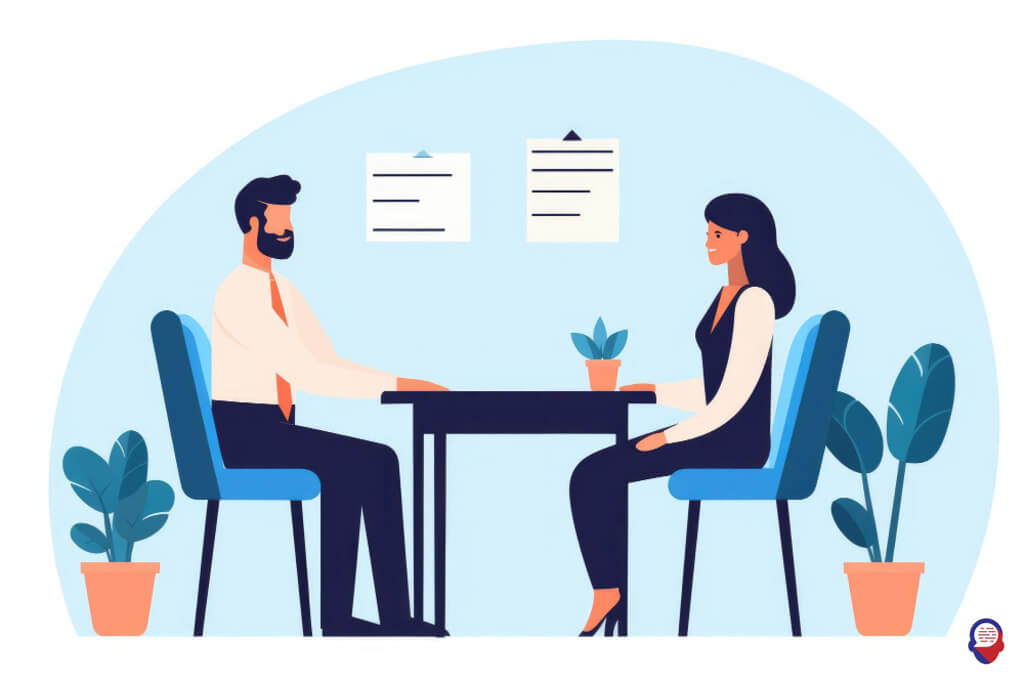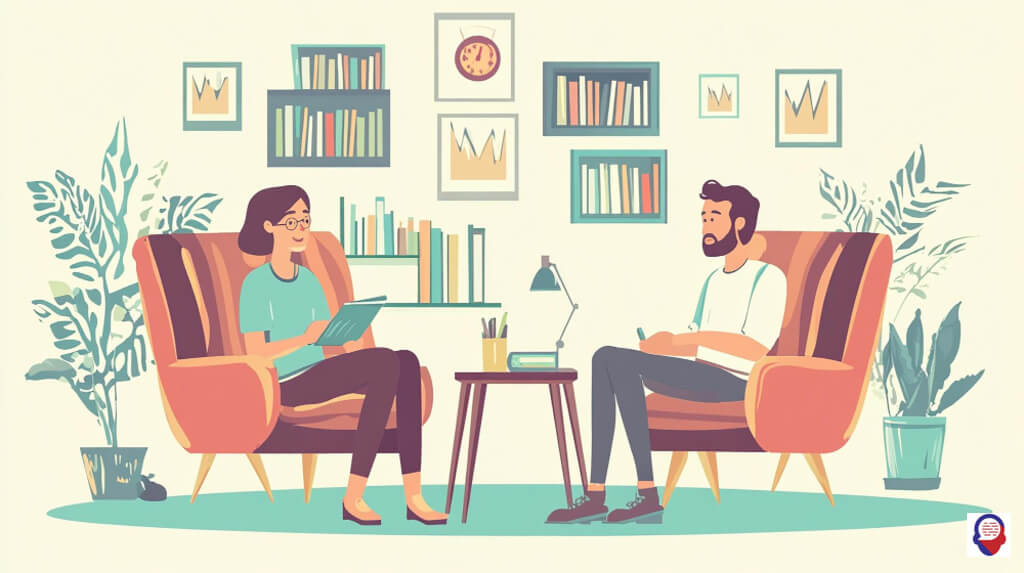How Talk Therapy Can Help You Overcome Depression
Major Depressive Disorder, or MDD, is more than just a fleeting case of the blues. It is a persistent and heavy fog that can settle over every aspect of your life, dimming the colours, muffling the sounds, and draining the energy from your days. It can feel like you are treading water in a vast, cold ocean with no land in sight. But there is a lighthouse in the distance, a proven and powerful beacon of hope, and it is called therapy. Understanding how therapy works is the first step toward navigating your way back to shore.
This journey is not about simply "thinking positive" or "snapping out of it". It is a structured, compassionate, and evidence-based process of untangling the complex knots of thoughts, feelings, and experiences that hold depression in place. It is about learning new skills, gaining profound self-awareness, and building a resilient foundation for a brighter future. You have the capacity to heal, and therapy can provide you with the map and the guide to do so.

What Exactly Is Major Depressive Disorder?
Major Depressive Disorder is a serious medical illness that negatively affects how you feel, the way you think, and how you act. It is characterised by a persistent feeling of sadness or a loss of interest in activities you once enjoyed, leading to a variety of emotional and physical problems that can decrease your ability to function at work and at home.
Unlike temporary sadness, which is a normal human emotion, MDD is pervasive and can last for weeks, months, or even years if left untreated. It is not a sign of weakness or something you can simply will away. Its symptoms are real and debilitating, often including changes in sleep patterns, appetite fluctuations, a profound lack of energy, feelings of worthlessness or excessive guilt, difficulty concentrating, and in severe cases, thoughts of self-harm.
The experience of depression is deeply personal and can manifest differently for everyone. For some, it is a crushing weight of despair that makes getting out of bed feel like a monumental task. For others, it is a hollow emptiness, a profound lack of feeling or joy, where life continues on screen but the audio has been muted. Recognising that these experiences are symptoms of a treatable condition is the crucial first step toward recovery.

Why Is Therapy A Primary Treatment For Depression?
Therapy is a primary treatment because it equips you with the lifelong skills and insights needed to understand, manage, and ultimately overcome the root causes of your depression. While medication can be invaluable for managing symptoms, therapy addresses the underlying psychological patterns, teaching you how to change your relationship with your thoughts and emotions for lasting change.
At its core, therapy, often called psychotherapy or talk therapy, provides a unique and powerful human connection. The therapeutic alliance, the trusting and collaborative relationship between you and your therapist, creates a safe space to explore difficult feelings without judgment. This relationship itself is healing, allowing you to feel seen, heard, and understood, which can be profoundly restorative when you feel isolated by depression.
Furthermore, therapy is not just talking, it is a process of active learning and change. A skilled therapist acts as a guide, helping you identify the specific thought processes, behavioural habits, and relational dynamics that fuel your depression. You do not just vent about your problems, you actively work to solve them, building a toolkit of coping strategies that can prevent future episodes and foster genuine, long-term resilience.

What Are The Most Effective Types Of Therapy For MDD?
Several evidence-based therapies are highly effective for MDD, with Cognitive Behavioural Therapy (CBT) and Interpersonal Therapy (IPT) being among the most researched and widely recommended. The best approach often depends on your individual circumstances, symptoms, and personal preferences, but these structured therapies provide a clear path toward recovery.
The term "evidence-based" is critical here. It means these therapeutic models have been rigorously tested in scientific studies and have been shown to produce significant, measurable improvements for people struggling with depression. This is not guesswork, it is a science-backed approach to mental wellness. Choosing one of these methods, or a therapist who integrates elements from them, gives you the best chance of success.
While CBT and IPT are often highlighted, other powerful modalities exist, including Psychodynamic Therapy and Acceptance and Commitment Therapy (ACT). A good therapist will often draw from various approaches to tailor the treatment specifically to you. The goal is not to fit you into a therapeutic box, but to use the best available tools to help you build a life that feels meaningful and free from the grip of depression.

How Does Cognitive Behavioural Therapy (CBT) Work?
Cognitive Behavioural Therapy works by helping you identify, challenge, and change the unhelpful thought patterns and corresponding behaviours that create and maintain your depressive state. It operates on the principle that your thoughts, not external events themselves, are what shape your feelings and actions.
CBT is a very active and collaborative form of therapy. You and your therapist work together like detectives, investigating the automatic negative thoughts that pop into your mind and contribute to feelings of sadness, hopelessness, and worthlessness. For example, a thought like "I failed the test, so I am a complete failure" can be examined and reframed to something more balanced and realistic, such as "I failed the test, which is disappointing, but it doesn’t define my intelligence or my worth. I can study differently next time."
This cognitive work is paired with behavioural changes. Your therapist might encourage you to schedule activities that bring you a sense of pleasure or accomplishment, even if you do not feel motivated to do them at first. This technique, known as behavioural activation, helps to counteract the withdrawal and inactivity that depression thrives on, creating a positive feedback loop where actions can improve mood, which in turn makes further action easier.

What Is Interpersonal Therapy (IPT)?
Interpersonal Therapy focuses on improving your relationship skills and social networks to alleviate depressive symptoms. The core idea behind IPT is that our moods and our relationships are intrinsically linked, and distress in our social lives can be a powerful trigger or sustaining factor for depression.
IPT is a time-limited and structured therapy that typically centres on resolving problems in one of four key areas. The first is unresolved grief, helping you process the loss of a loved one in a healthy way. The second is interpersonal role disputes, which involves navigating conflicts with significant people in your life, such as a partner, family member, or colleague.
The third area is role transitions, which addresses the difficulty of adapting to major life changes, like becoming a parent, starting a new job, or retiring. Finally, IPT can address interpersonal deficits, helping individuals who struggle with forming and maintaining quality relationships to build their social skills and confidence. By strengthening your connections with others, IPT helps to build a robust support system that buffers against the impact of depression.

Are There Other Helpful Therapeutic Approaches?
Yes, other approaches like Psychodynamic Therapy, Acceptance and Commitment Therapy (ACT), and Mindfulness-Based Cognitive Therapy (MBCT) also show significant success in treating depression. These therapies offer different perspectives and tools, which may be a better fit for some individuals depending on their history and goals.
Psychodynamic Therapy delves deeper into your past, exploring how early life experiences and unconscious thoughts may be influencing your current feelings and behaviours. It aims to bring these unconscious patterns into conscious awareness, allowing you to understand the "why" behind your depression and break free from long-standing, self-defeating cycles. This approach can lead to profound self-understanding and lasting personality change.
Acceptance and Commitment Therapy, or ACT, takes a slightly different path. Instead of trying to eliminate difficult thoughts and feelings, ACT teaches you to accept their presence through mindfulness techniques while committing to actions that are guided by your core personal values. It helps you build a rich and meaningful life even with the existence of pain, reducing the struggle against your own emotions. Similarly, MBCT specifically helps those with a history of recurrent depression, using mindfulness to recognise and disengage from the negative thought patterns that can trigger a relapse.

What Can You Expect From Your First Therapy Session?
Your first therapy session is primarily an opportunity for you and your therapist to get to know each other, discuss the reasons that brought you to therapy, and begin to outline some initial goals. It is much more of a conversation than an interrogation, focused on building a foundation of trust and understanding.
You can expect to discuss practical matters first, such as confidentiality, scheduling, and fees. Your therapist will explain the limits of confidentiality, ensuring you understand that the space is safe and private. Then, they will likely ask you broad questions like "What brings you in today?" or "How have things been for you lately?" This is your chance to share your story in your own words and at your own pace.
Remember, this session is also for you to assess the therapist. Do you feel comfortable talking to them? Do they seem empathetic and non-judgmental? A strong therapeutic relationship is one of the biggest predictors of success in therapy, so it is important that you feel a sense of connection and hope. You do not need to have everything figured out before you walk in, you just need to show up.

How Do You Know If Therapy Is Working?
You will know therapy is working when you begin to notice small, yet meaningful, shifts in your daily life, thoughts, and emotional capacity. Progress is often gradual rather than a single breakthrough moment, manifesting as a slow lifting of the fog.
Some of the earliest signs might be subtle. You may find you have a little more energy in the mornings or that you are sleeping more soundly through the night. You might notice that a negative thought appears, but you are able to catch it and question its validity rather than letting it spiral. You might feel a flicker of interest in a hobby you had long abandoned or find it slightly easier to connect with a friend.
It is crucial to understand that progress is not always a straight line, there will be setbacks and difficult weeks, and that is a normal part of the healing process. The key is the overall trajectory. Over time, you should feel more capable of managing your emotions, more hopeful about the future, and more engaged with your life. Openly discussing your progress with your therapist is also a vital part of the process, allowing you to adjust goals and celebrate your hard-earned wins together.

Can Therapy Be Combined With Medication?
Yes, for many people, especially those experiencing moderate to severe depression, combining therapy with antidepressant medication is the most effective treatment strategy. This integrated approach, often referred to as combination therapy, allows you to attack depression on two different but complementary fronts.
Medication, prescribed by a GP or a psychiatrist, works on a neurochemical level to help regulate mood and alleviate the most debilitating physical and emotional symptoms of depression. It can provide the stability and energy needed to lift the heavy fog, making it possible for you to fully engage in the therapeutic process. For someone struggling to even get out of bed, medication can be the crucial step that allows them to get to their therapy appointments and do the work required for recovery.
Therapy, in turn, provides the invaluable skills for long-term well-being. It helps you understand the psychological triggers of your depression, change the thought and behaviour patterns that contribute to it, and build healthier coping mechanisms. This means that even if you eventually decide to taper off medication with your doctor’s guidance, you are left with a robust toolkit to manage your mental health and prevent future relapses, creating a foundation for lasting resilience.
Frequently Asked Questions

How long does therapy for depression take?
The duration of therapy for depression varies significantly from person to person. It depends on factors like the severity of your symptoms, the specific type of therapy you engage in, your personal history, and the goals you set with your therapist. Some people find significant relief with short-term, structured approaches like CBT or IPT, often within 12 to 20 sessions.
For others, particularly those with long-standing or recurrent depression, a longer-term approach may be more beneficial. The goal is not to stay in therapy forever, but to stay for as long as it is helpful. The right timeline is the one that allows you to build the skills and resilience you need to thrive independently.

What if I don’t connect with my therapist?
It is absolutely essential that you feel a sense of trust, safety, and connection with your therapist, as this relationship is the cornerstone of effective treatment. If you do not feel that you are a good fit after a few sessions, it is perfectly acceptable and even wise to seek out a different therapist.
This is not a reflection on you or the therapist, sometimes personalities and styles simply do not align. You can discuss your concerns with the therapist directly, or you can simply decide to look for someone else. Finding the right therapist is a bit like dating, you may need to meet a few people before you find the one who is right for you. Do not give up on therapy if the first person is not a match.

Is online therapy as effective as in-person therapy?
Yes, a large body of research has shown that for many common mental health conditions, including depression, online therapy can be just as effective as traditional in-person sessions. Online therapy offers significant benefits in terms of convenience, accessibility, and comfort, allowing you to connect with a therapist from your own home.
The most important factor for success, whether online or in-person, remains the quality of the therapeutic relationship. As long as you feel connected to your therapist and are able to communicate openly and honestly, the medium through which you connect is often less important. The best choice depends entirely on your personal preference, lifestyle, and comfort level.

Do I have to be diagnosed with MDD to seek therapy?
No, you absolutely do not need a formal diagnosis of Major Depressive Disorder to seek and benefit from therapy. Therapy is a valuable resource for anyone who is struggling with their mental health, navigating a difficult life transition, or simply wants to understand themselves better and improve their well-being.
You do not need to be in a crisis to deserve support. Whether you are dealing with stress, relationship issues, grief, or a general feeling of being stuck, a therapist can provide guidance, tools, and a non-judgmental space to explore your experiences. Thinking of therapy as preventative care for your mind, not just a treatment for an illness, is a powerful and healthy perspective.
Taking the first step is often the hardest part of any journey. At Counselling-uk, we provide a safe, confidential, and professional place for you to explore your challenges and find your path forward. You do not have to carry this weight alone. When you’re ready, we’re here to listen and help you rediscover your strength. Begin your journey toward healing today.



